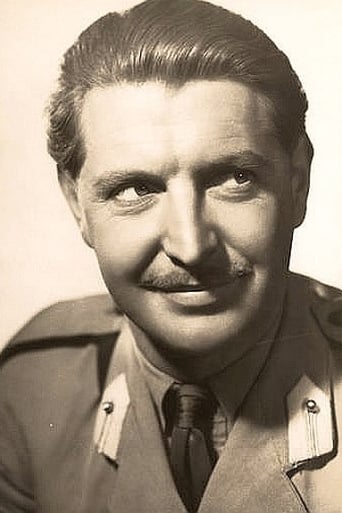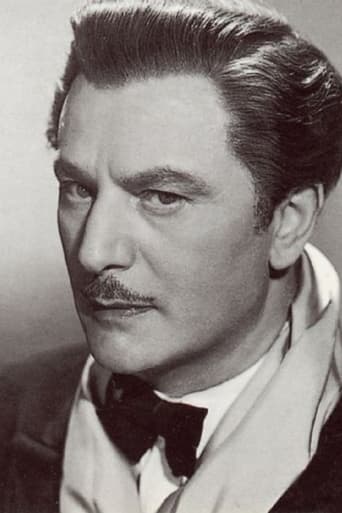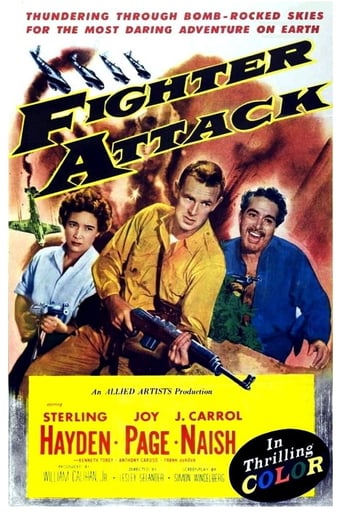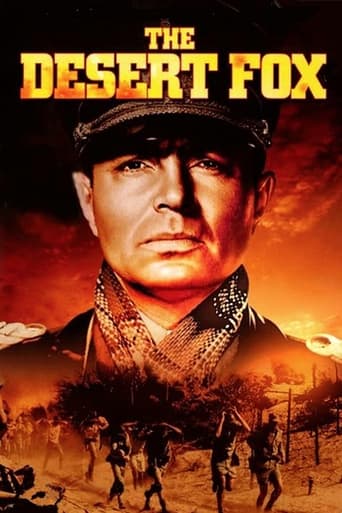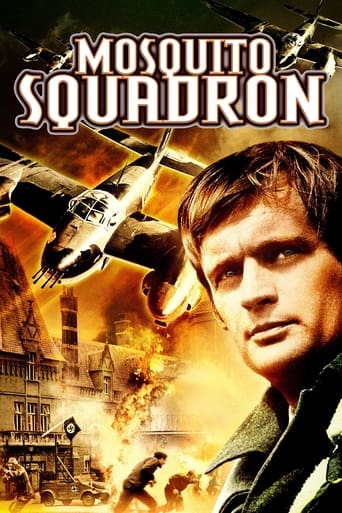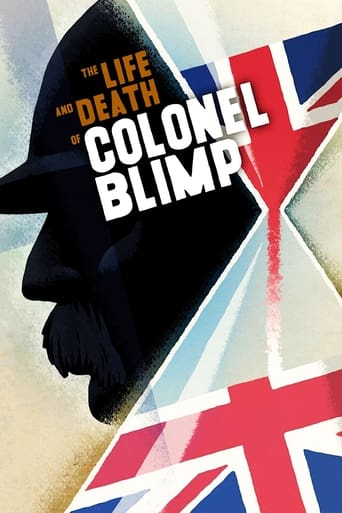
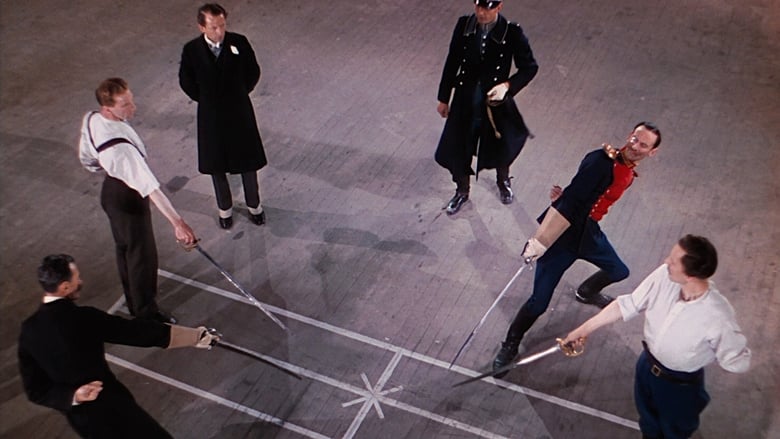
The Life and Death of Colonel Blimp (1945)
General Candy, who's overseeing an English squad in 1943, is a veteran leader who doesn't have the respect of the men he's training and is considered out-of-touch with what's needed to win the war. But it wasn't always this way. Flashing back to his early career in the Boer War and World War I, we see a dashing young officer whose life has been shaped by three different women, and by a lasting friendship with a German soldier.
Watch Trailer
Cast


Similar titles
Reviews
My first experience of a Powell-Pressburger film was 'Black Narcissus'. There were certain elements in it that I admired, but overall it left me a bit underwhelmed. So 'The Life and Death of Colonel Blimp' was my second bite of the cherry and I was completely blown away. It is very loosely based on a cartoon character called Colonel Blimp by cartoonist David Low. This character in the cartoons represented the old and the outdated elements of English society. Blimp with his big moustache was arrogant, naive, pompous and out of touch with the rest of the world due to his reluctance to change and let go of his outdated ideals. Although there is no character called Blimp in the film, but the main character of Clive Candy is the one who is supposed to be the figurative Blimp in the story. When the film begins we see Candy with the Blimp-esque moustache in all his overbearing and obnoxious 'glory'. He verbally bashes a younger officer named Spud for showing initiative and doing something out of the book instead of sticking to the rules. But Powell and Pressburger subsequently over the course of the film show us the real man beneath the moustache and his life through flashbacks of significant phases of his past which involve his involvement in the Boer War, WW1 and then ending with the WW2.I read Roger Ebert's review for the film and I have to say that he was at his analytical best while reviewing the film. Although the rift between the young and the old is very quickly established in the film and the viewer will certainly find some lack of logic and prudence in the ideals upheld so strongly by Clive Candy and the old guard, but Ebert correctly states that Powell and Pressburger in the film are actually defending the old. They are doing it not by blaming the new, but by actually trying to understand the old which in this case is the character of Clive Candy. Powell and Pressburger took a cartoon character that was supposed to be mocked and actually treated him with respect and genuine sympathy. The humanism that richly ornaments every minute of this film is very Renoir-esque. This film certainly is a bit of a tribute to a fading era where gentleman ship, courtesy, kindness and chivalry were never eclipsed by ruthlessness. Candy belongs to the era where more time was spent in a round table conference negotiating the rules and the code of honour to be maintained in the battle than the battle itself. The politics in the film can be perceived to be a bit too sentimental and pro-British, but even then the sentimentality gets conveyed in most innocent and adorable manner. But there is one aspect of the film which makes me amazed that this was a film that was released in 1943. That aspect is the way Powell and Pressburger deals with the character of Theo Kretschmar-Schuldorff. By going against all the conventions of propaganda cinema of the time, they actually made Theo a likable, honorable German soldier who becomes the most loving friend of Candy.Another very important theme explored in the film is the change that takes place in a character with age. During flashbacks we see that Candy himself was also quite the hot-blooded young man who didn't hesitate to disobey the orders of his superiors when he felt necessary exactly like Spud. But with time he became the old man who stuck to the rules and had an undying belief in playing fair. Maybe Spud sees a reflection of his future self in Candy. The sight of the old Candy in the midst of the younger generation reminded me of that scene in 'Once Upon a Time in America' where the old, grey haired Noodles looks at the young teenagers enjoying themselves as they pass him by on the road in their car.Now let's come to the acting. Roger Livesey's performance in this film is one of the best performances that I have ever seen. This might seem to be a bit of a over-the-top comment, but I have no hesitation in making this statement. He is an absolute dynamite and yet very nuanced in every scene and plays Candy with the utmost confidence. We see him play the young, the middle aged and then the old Candy. He becomes the character and is believable in every scene. Deborah Kerr plays three different roles. I think these three characters were meant to show the changing roles of women in society with the passage of time. Kerr also like Livesey brings a lot of subtlety to distinguish each of her characters from the other. Anton Walbrook who plays Theo just exudes charm and you can't help but love him and love his friendship with Candy.Like 'Black Narcissus', the cinematography is again brilliant in vibrant Technicolor. Some of the camera movements which Powell used were beautiful and so ahead of its time. Pressburger's screenplay is humane and sympathetic and Powell's style of storytelling only complements and elevates the script to a level where dry British humour goes hand- in-hand seamlessly with rich emotions. I found myself teary eyed on a few occasions during the last few minutes of the film. This certainly is a humanistic masterpiece.
A very odd and fascinating film tracing the military career of a hotshot Englishman.That the film is both odd and fascinating should come as no surprise to anyone, since it was created by the team of Michael Powell and Emeric Pressburger. While watching the film, I felt its length and checked my watch a couple of times. But days after I'd seen it, I found myself thinking back on it, and I realized how much I liked it. It's the kind of movie I want to see again, because I have a feeling it would grow richer with multiple viewings.Roger Livesey gives a spectacular performance as the main character, authentically maturing and aging before our eyes from young go-getter to old man being left behind by changing times. Deborah Kerr is also radiant and lovely (was she ever not?) in fulfilling one of the film's most charming conceits -- she plays different women who come in and out of the life of our hero but who all remind him of his first and true love.The movie makes some pretty shocking points about war given that it came out while WWII was raging. So many war-themed films of the time were propaganda pieces designed to make the Allied Forces feel heroic and noble for stepping up against evil forces. But this movie suggests there is no such thing as a gentleman's war, that war is ugly and that one side has to be willing to fight uglier and dirtier than the other to ensure victory.A mesmerizing film.Grade: A
An extraordinary film, full of wonders and invention. Roger Livesey's performance as Candy features one of the most amazing transformations of the history of cinema, from young Candy to old Candy. It is as if two different actors were playing the role.Emeric Pressburger's script is one of the most ambitious and literary ever used in a film. It is heartbreaking and at the same time very clever and self-reflecting. It talks about a passed age, and it shares some common themes with Proust's Remembrances of Things past. It could be a novel standing on its own.Colonel Blimp is a masterpiece for the ages, which will never grow old.The summit of the Archers' career.
Watched it last night. I'd never seen it before, but not for lack of trying. I'd begun watching a number of times and always lost interest in the first 10 minutes. But this time I'd DVR'd it on the MGM-HD movie channel and it was sitting there in Hi-Def on my DVR hard drive and I was thinking I couldn't just delete it without watching, what with all the wonderful things I'd heard about it and all ... so I settled in again and had another go.What had always put me off -- and very nearly put me off again last night -- was the tone of the opening scenes. It was 1943, Britain was practically Liberty's last bastion in Europe, and here's a movie in which the British Army is interacting with the Home Guard as though they were all in a Marx Brothers movie. The first segment flies by at a breakneck pace and is so larded with stereotypical British dialogue I almost expected Bertie Wooster to put in an appearance. I'm not saying I don't enjoy such things at times; I'm saying that to me in this film the irreverent tone did not fit the situation. And the events that were transpiring -- the "all in fun old boy" near-decapitation of a motorcyclist, the violation of the rules of a game by an enthusiastic young Army officer, the humiliation in a Turkish bath of a nearly-naked old fat man with a big mustache, the betrayal of the Army by a Mata Hari in uniform -- just did not appeal to me at all, not even a little bit. I came so close to quitting yet again last night, but ...I'm saying all this for the benefit of anybody who's never seen the movie. If you can make it through the first, oh, 30 minutes or so, I believe you'll be rewarded with one of the most memorable movie experiences of your life. You'd think the movie would be about that insufferable young Army officer, but no ... it's about the old fat man with the big mustache and how he came to be where he is, why he thinks right is might and not the other 'way round, whom he loved, whom he lost, the trophies on his wall, his friend the German Army officer, and so very very much more. The background of the opening and closing credits is drawn to look like a medieval tapestry -- and that's just a perfect artistic choice because the film is the tapestry of a life. You see the old fat mustachioed blow-hard at the beginning of the film and you dismiss him, but then through an extended movie-length flashback you follow his life from the time he was a brash, insufferable young Army officer himself, through his distinguished service to his country, right up to the day he's humiliated in the Turkish bath. And this time you look at that wonderful, flawed old man in a very different light.The film is a feast for the eyes in luscious Technicolor, with sumptuous sets, glorious costumes, and the lovely young Deborah Kerr in three -- count 'em, three! -- different roles. I thought the acting was superb throughout, with OK, one or two exceptions -- notably an American motorcycle driver. The highlight of the film was a monologue by the German Army officer friend played by Anton Walbrook that had me riveted to the screen -- just brilliant writing and acting. I won't spoil things by describing what he said -- I'll just highly recommend you see it if you haven't already. Some say the reason Churchill opposed the making of this film was the sympathetic depiction of a German officer. Could be, but if the charge against Churchill is correct, then Churchill was wrong. Or maybe it's because the main character was just a bit too reminiscent of Churchill himself. I think nobody knows the real answer.To refresh my memory, I looked up Colonel Blimp in Wikipedia because as far as I could tell there was nobody in this movie actually named Colonel Blimp. As soon as I saw the cartoon character I recognized him -- of course I'd seen him before, and of course Colonel Blimp is a type, not an actual character. Of course.Fine movie, well worth the time invested.


